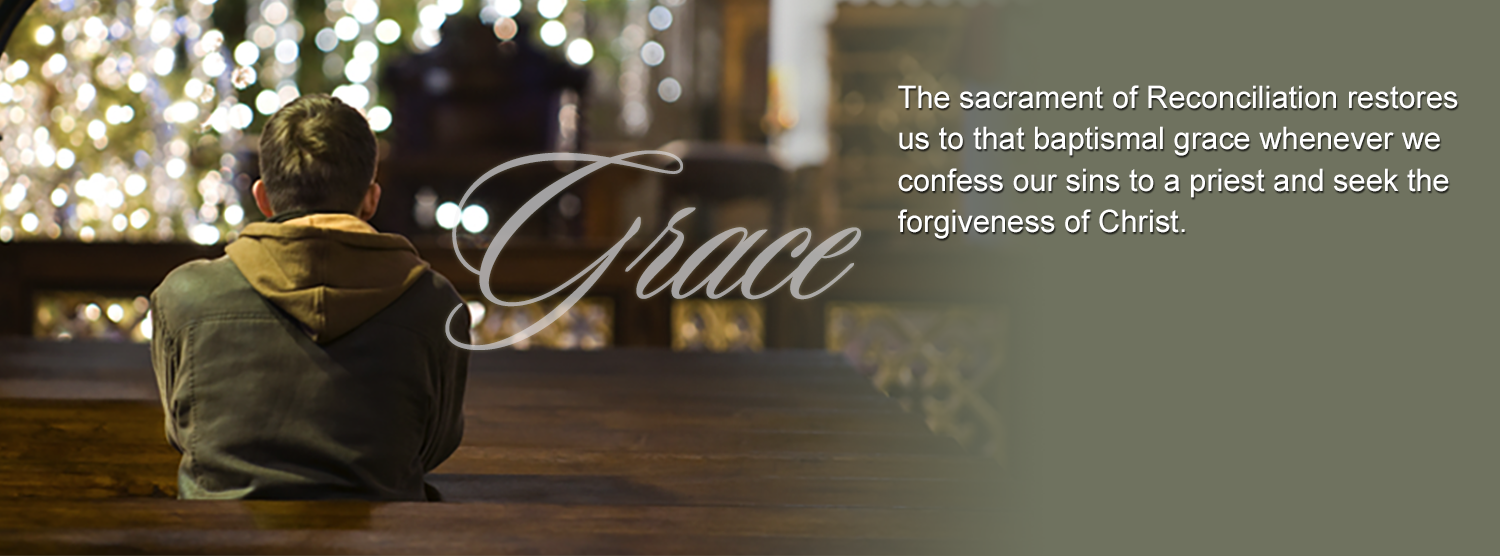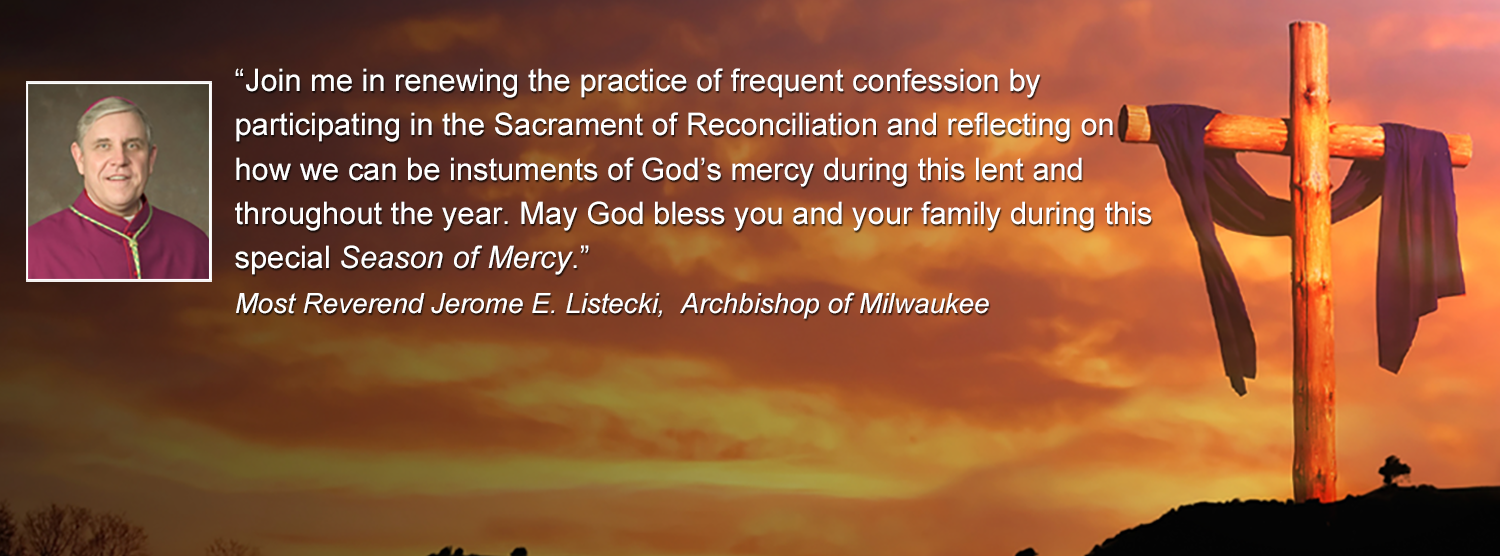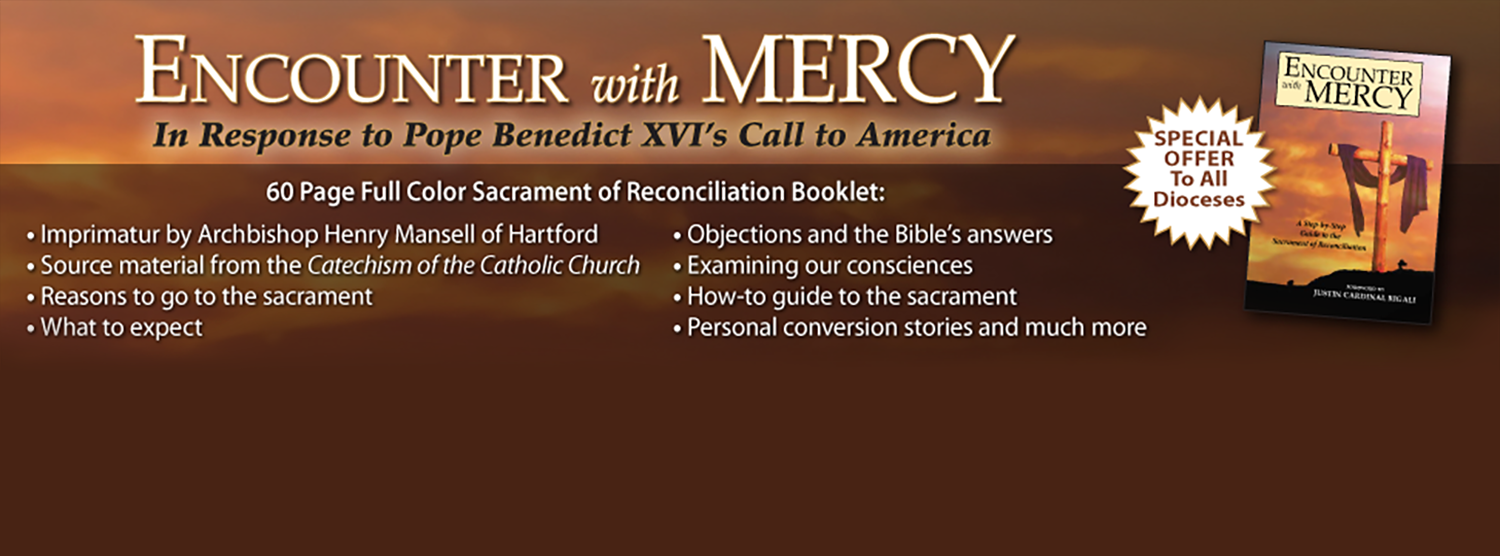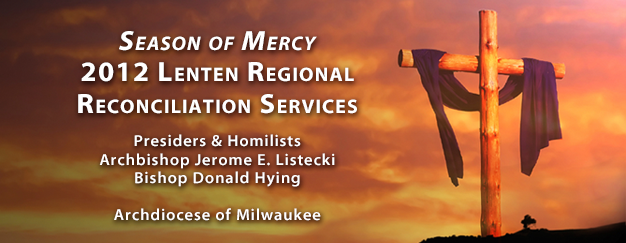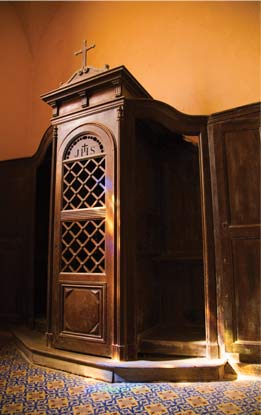

The saving mission of Jesus Christ is the reconciliation of humanity to God! Through His Incarnation, ministry, preaching, miracles, institution of the Eucharist and ultimately His death on the cross and resurrection, Jesus offers every human person the gift of forgiveness and the promise of eternal life. This powerful grace of Christ’s reconciliation has passed over into the sacraments; thus, baptism is the sacrament that fundamentally relates a person to the life of the Blessed Trinity and the communion of the Church. The sacrament of Reconciliation restores us to that baptismal grace whenever we confess our sins to a priest and seek the forgiveness of Christ. Truly, this sacrament is our “personal encounter with Jesus Christ and His Mercy”. Jesus lovingly waits for us to visit Him in this sacrament of Mercy.
“the Father of mercies is the source of all forgiveness. He effects the reconciliation of sinners through the Passover of his Son and the gift of his Spirit, through the prayer and ministry of the Church” (CCC 1449)
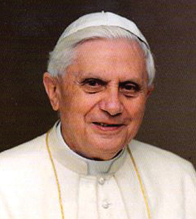
“To a great extent, the renewal of the Church in America and throughout the world depends on the renewal of the practice of Penance and the growth in holiness which that sacrament both inspires and accomplishes”
Pope Benedict XVI , Washington D.C. , April 17, 2008
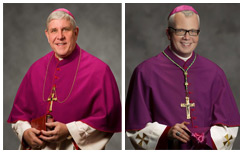 Archdiocese of Milwaukee, WI
Archdiocese of Milwaukee, WI
Archbishop Jerome E. Listecki and Bishop Hying invite Catholics to live their faith and personally encounter Christ and His Mercy through the Sacrament of Reconciliation.
Read Letter from the Archbishop - Click Here
Join us for the following 2012 services in the Milwaukee area:
• Tuesday, March 6 - Milwaukee, WI
• Tuesday, March 13 - Genesse Depot, WI
• Tuesday, March 20 - Burlington, WI
• Tuesday, March 27 - Plymouth, WI

Church Documents and Papal Writings and Addresses
“Reconciliation and Penance”, Pope John Paul II, Apostolic Exhortation, Dec 2, 1984. Click Here
Circular Letter Concerning the Integrity of the Sacrament of Penance, Congregation for Divine Worship and the Discipline of the Sacraments, March 20, 2000. Click Here
Holy Thursday Letter of the Holy Father Pope John Paul II to Priests regarding the rediscovery of the Sacrament of Reconciliation, March 25, 2001. Click Here
“Misericordia Dei” Apostolic Letter in the Form of Motu Proprio on Certain Aspects of the Celebration of the Sacrament of Penance, Pope John Paul II, April 7, 2002. Click Here
“The Sins We commit Distance Us from God”, address of Pope Benedict XVI delivered before praying the midday Angelus on Feb 15, 2009 with those gathered in St. Peter’s Square. Click Here
“To a great extent, the renewal of the Church in America and throughout the world depends on the renewal of the practice of Penance and the growth in holiness which that sacrament both inspires and accomplishes” From Pope Benedict XV’s homily at Washington Nationals Stadium, Washington, DC, April 17, 2008. Click Here
Catechesis on Forgiveness in the sacrament of Reconciliation by Pope John Paul II General Audience Sept 8, 1999. Click Here
Catechesis on Invitation to Conversion in the sacrament of Reconciliation by Pope John Paull II General Audience Sept 15, 1999. Click Here
Catechesis on the Gift of Reconciliation in the sacrament of Reconciliation by Pope John Paull II General Audience Sept 22, 1999. Click Here
Pope Benedict XVI Address to Confessors Feb 19, 2007. Click Here
Information for sacramentofmercy.org
Catechism of the Catholic Church
www.vatican.va/archive/ccc_css/archive/catechism/p2s2c2a4.htm
Chapter Two: Sacraments of Healing
Article 4: The Sacrament of Penance and Reconciliation
What is this sacrament called? 1423-24
Why a sacrament of Reconciliation after Baptism? 1425-1426
The conversion of the baptized 1427-1429
Interior Penance 1430-1433
The many forms of penance in Christian Life 1434-1439
The sacrament of Penance and Reconciliation 1440-1449
The Acts of the Penitent 1450-1460
The Minister of the Sacrament 1461-1467
The Effects of this Sacrament 1468-1470
Indulgences 1471-1479
The celebration of the sacrament of Penance 1480-1484
In Brief 1485-1498
Taken from the Brochure "Personal Encounter with Jesus Christ"

When to go to the Sacrament of Reconciliation?
A Catholic should definitely go to confession when aware of grave sin. In addition, the graces of the sacrament help us to overcome venial sins as well, so regular confession is very helpful. If too much time elapses between confessions, it becomes more difficult to remember what sins need to be confessed. Monthly confession seems to be a very good spiritual practice to help overcome the power of sin in our lives and to receive the healing mercy of Jesus Christ on a regular basis.
Prepare to Encounter Jesus Christ and His Mercy
To celebrate this sacrament well, we need to prepare ourselves well by examining our conscience effectively to know how we have sinned and where we need God’s mercy in our lives. Ask the help of the Holy Spirit and Our Lady’s intercession to see ourselves as we truly are.
What to Confess in Reconciliation
A thorough examination of conscience before confession is helpful for a fruitful experience. We need to confess both mortal and venial sins, in light of the Ten Commandments and the Beatitudes. We also need to confess both sins of commission and omission, the wrong things that we have done and the good that we have failed to do. Putting our sins into the context of our relationships with God, others and self is helpful. What have I done or not done that has damaged those relationships? Prayerful and thorough preparation helps us to receive the many graces of reconciliation.
Steps for Confession
1. Enter the confessional or Reconciliation room, make the sign of the cross with the priest, state your vocation in life, and say, “Bless me, Father, for I have sinned.” Tell him the last time you celebrated the sacrament of Reconciliation.
2. Confess your sins in a simple, straightforward manner.
3. Listen well to advice and to the penance the priest gives to do, as a sign of repentance and desire to overcome sin.
4. Pray an act of contrition.
O my God, I am heartily sorry for having offended you, and I detest all my sins because of your just punishment, but most of all because they offend you, my God, who are all good and deserving of all my love. I firmly resolve with the help of your grace to sin no more and to avoid the near occasion of sin. Amen. From the Rite of Penance.
5. The priest absolves your sins and you are forgiven through the power of the Holy Spirit.
6. Perform the penance prescribed by the priest.
Effects of a Good Confession
“reconciliation with God by which the penitent recovers grace; reconciliation with the Church; remission of the eternal punishment incurred by mortal sins; remission, at least in part, of temporal punishments resulting from sin; peace and serenity of conscience, and spiritual consolation; an increase of spiritual strength for the Christian battle.” (CCC 1496) “He is reconciled with his brethren whom he has in some way offended and wounded. He is reconciled with the Church. He is reconciled with all creation.” (CCC 1469)
Taken from the Brochure "Personal Encounter with Jesus Christ"

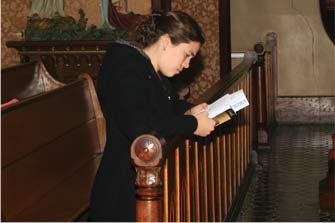 Examine our Lives
Examine our Lives
Let us look at our lives in the light of the Ten Commandments and the Beatitudes in order to realize our sins of commission and omission, what we have done wrong and the good that we have failed to do.
The Ten Commandments
1. You shall have no gods before me.
Is God the center of my life? Do I fully practice my faith? Is there a relationship, a possession, an activity that has become more important to me than God?
2. You shall not take the name of the Lord in vain.
Do I swear or use God’s name in vain? Is my speech worthy of a child of God?
3. Keep holy the Sabbath.
Do I attend Mass on all Sundays and holy days? Do I make Sunday a day of rest and prayer? Do I avoid unnecessary work and shopping on Sundays?
4. Honor your father and mother.
Do I love, respect and obey my parents? Do I respect and help those in authority?
5. You shall not kill.
Have I physically or emotionally hurt others? Do I respect the dignity of everyone? Do I work for the great cause of the defense of all human life?
6. You shall not commit adultery.
Do I live chastity as proper to my state in life? Do I respect the sexuality of others and myself as a divine gift? Do I use artificial contraceptives? Do I use masturbation, pornography, extra-marital sexual intercourse as a way to gratify lust?
7. You shall not steal.
Have I taken what does not belong to me? Do I work diligently for the pay I receive? Do I share what the Lord has given to me?
8. You shall not bear false witness against your neighbor.
Do I lie? Have I gossiped or slandered others? Have I hurt the reputation of others?
9. You shall not covet your neighbor’s wife.
Do I honor and respect the proper boundaries of relationships? Have I led others to sin through immodesty or bad example?
10. You shall not covet your neighbor’s possessions.
Am I envious or jealous of others? Am I selfish, greedy or possessive with things or relationships?
The Beatitudes
1. Blessed are the poor in spirit, for theirs is the kingdom of heaven.
Do I live a spirit of detachment and generosity? Do I sacrifice for others?
2. Blessed are they who mourn, for they will be comforted.
Do I console and help those who mourn and suffer? Do I show compassion?
3. Blessed are the meek, for they will inherit the land.
Am I authentically humble and self-giving? Have I been egotistical or boastful?
4. Blessed are they who hunger and thirst for holiness, for they will be satisfied.
Am I passionate for the things of God? Do I work for the triumph of love, peace and justice?
5. Blessed are the merciful, for they will be shown mercy.
Am I forgiving and merciful? Do I give others the benefit of the doubt? Am I harsh or judgmental?
6. Blessed are the pure of heart, for they will see God.
Am I single-minded in the practice of my faith? Have I allowed a particular sin or vice to distract me from God?
7. Blessed are the peacemakers, for they will be called children of God.
Am I a person of reconciliation, peace and mercy? Do I hold grudges or seek revenge?
8. Blessed are they who are persecuted, for theirs is the kingdom of heaven.
Do I suffer well? Am I willing to sacrifice anything for my faith? Do I allow human respect to keep me from being a Christian witness? What do I confess in Reconciliation?
For a complete list of the Catholic Dioceses in the U.S. visit: USCCB Directory of Dioceses
For Mass Times and Confessions Nationwide visit: www.MassTimes.org
Dioceses in Wisconsin
Diocese of Green Bay
Most Reverend David L. Ricken
Bishop of Green Bay
P.O. Box 23825
Green Bay, WI 54305-3825
Diocese of La Crosse
Most Reverend William P. Callahan, OFM Conv.
Bishop of La Crosse
P.O. Box 4004
La Crosse, WI 54602-4004
Diocese of Madison
Most Reverend Robert C. Morlino
Bishop of Madison
P.O. Box 44983
Madison, WI 53744-4983
Archdiocese of Milwaukee
Most Reverend Jerome E. Listecki
Archbishop of Milwaukee
P.O. Box 070912
Milwaukee, WI 53207-0912
Diocese of Superior
Most Reverend Peter F. Christensen
Bishop of Superior
PO Box 969
Superior, WI 54880
Taken from the Brochure "Personal Encounter with Jesus Christ"

 The saving mission of Jesus Christ is the reconciliation of humanity to God! Through His Incarnation, ministry, preaching, miracles, institution of the Eucharist and ultimately His death on the cross and resurrection, Jesus offers every human person the gift of forgiveness and the promise of eternal life. This powerful grace of Christ’s reconciliation has passed over into the sacraments; thus, baptism is the sacrament that fundamentally relates a person to the life of the Blessed Trinity and the communion of the Church. The sacrament of Reconciliation restores us to that baptismal grace whenever we confess our sins to a priest and seek the forgiveness of Christ. Truly, this sacrament is our “personal encounter with Jesus Christ and His Mercy”. Jesus lovingly waits for us to visit Him in this sacrament of Mercy.
The saving mission of Jesus Christ is the reconciliation of humanity to God! Through His Incarnation, ministry, preaching, miracles, institution of the Eucharist and ultimately His death on the cross and resurrection, Jesus offers every human person the gift of forgiveness and the promise of eternal life. This powerful grace of Christ’s reconciliation has passed over into the sacraments; thus, baptism is the sacrament that fundamentally relates a person to the life of the Blessed Trinity and the communion of the Church. The sacrament of Reconciliation restores us to that baptismal grace whenever we confess our sins to a priest and seek the forgiveness of Christ. Truly, this sacrament is our “personal encounter with Jesus Christ and His Mercy”. Jesus lovingly waits for us to visit Him in this sacrament of Mercy.
“the Father of mercies is the source of all forgiveness. He effects the reconciliation of sinners through the Passover of his Son and the gift of his Spirit, through the prayer and ministry of the Church” (CCC 1449)
Encounter with Mercy booklet currently out of print
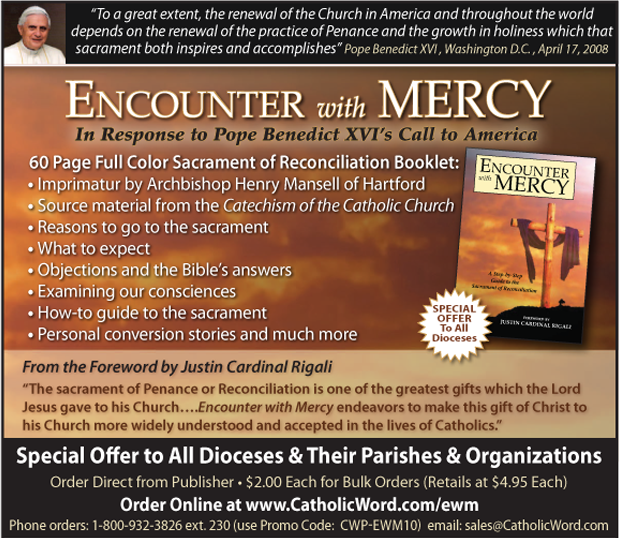
Episcopal Advisor: Archbishop of Milwaukee, WI - Most Rev. Jerome E. Listecki
Copyright © 2020 Rosary Evangelization Apostolate. Website by Geoffrey Butz Art & Design ~ www.geoffbutz.com
